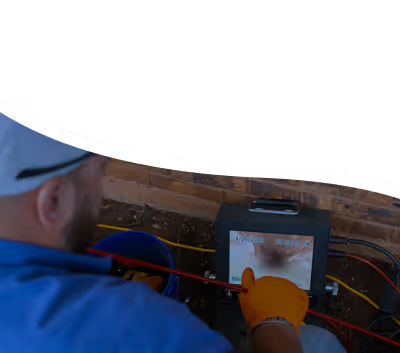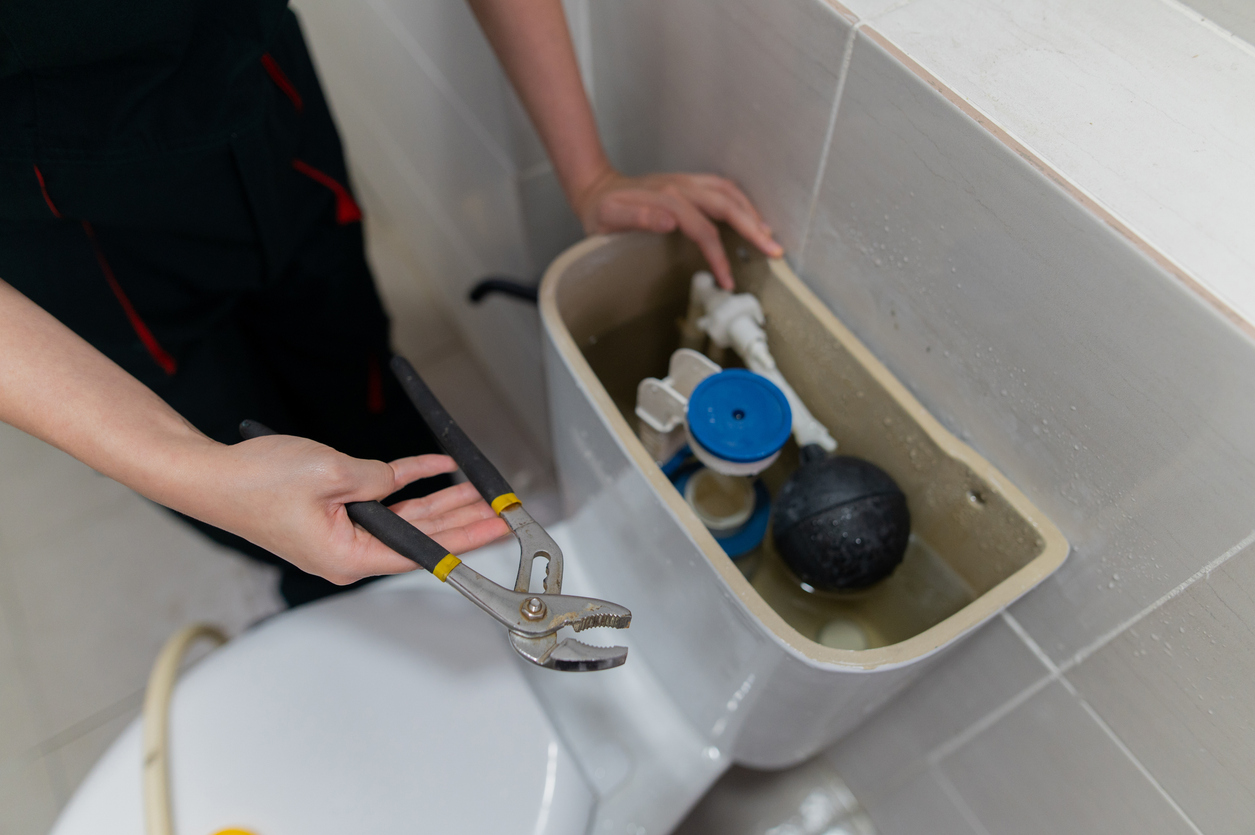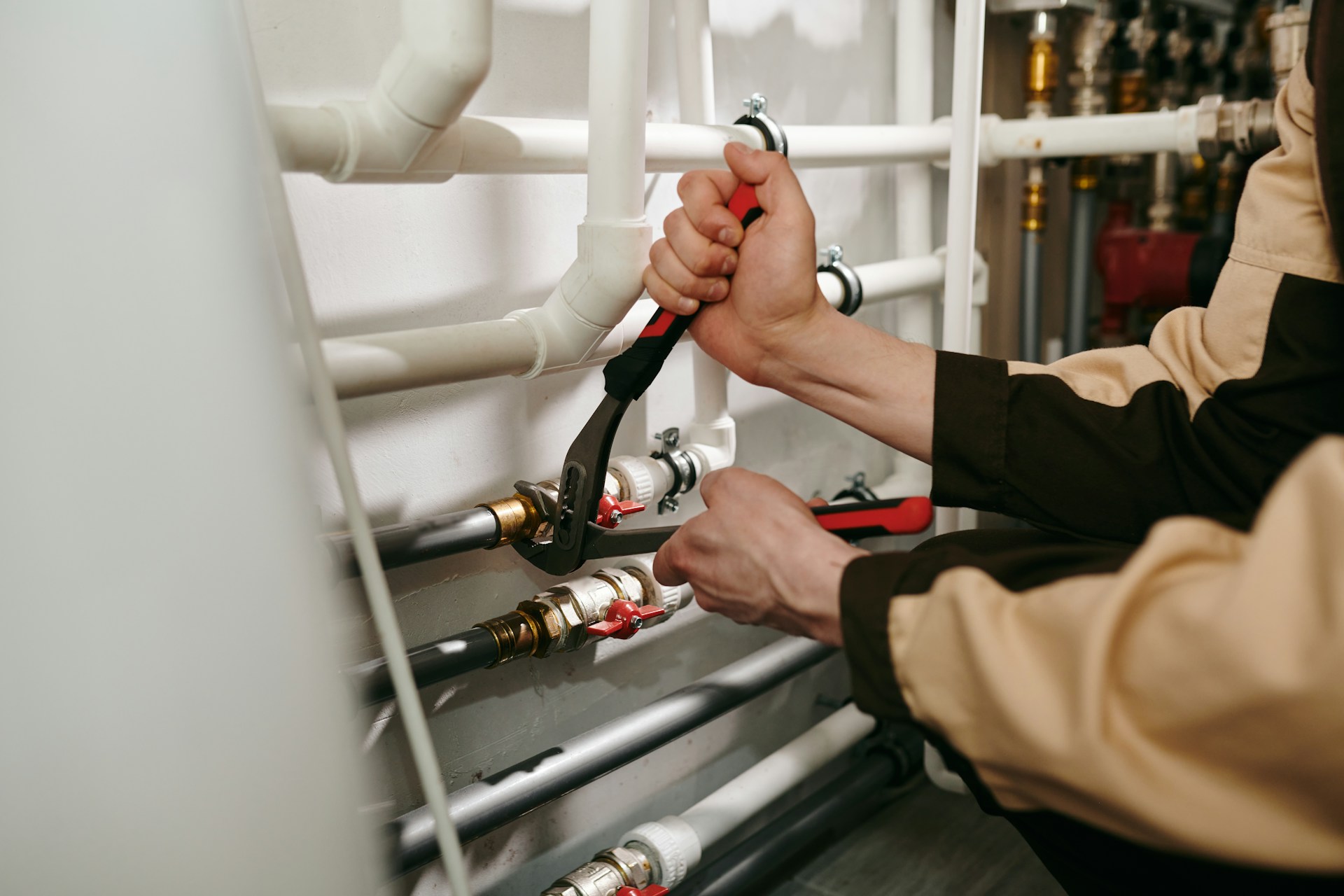The plumbing in your Abilene home works quietly behind the walls and under the floors, helping your daily routines go smoothly. But when pipes start to corrode, the signs often creep in slowly until nuisance turns into serious damage. Catching the warning signs early can keep things manageable and help prevent expensive plumbing repairs down the road.
Corrosion inside your pipes changes the way your plumbing system works. Small symptoms might seem minor, like water that doesn’t taste right or slight drops in water pressure. But these small issues are often signs of something deeper and if left alone, they can lead to leaks, burst pipes, or even structural damage. Understanding what causes pipe corrosion and how to recognize it is the first step to protecting your home.
Understanding the Causes of Pipe Corrosion
Pipe corrosion doesn’t happen overnight. It develops over time when materials inside the piping system react to elements around them. Several everyday factors contribute to this problem, especially in homes with older plumbing.
- Water Quality: High acidity, minerals like calcium or magnesium, and frequent changes in water temperature can all break down pipes from the inside. Hard water, in particular, causes mineral buildup that wears out inner pipe surfaces over time.
- Age of Plumbing: Pipes, just like anything else in your home, wear down with age. Galvanized steel pipes commonly found in older homes are more likely to show signs of corrosion the longer they’ve been in use.
- Pipe Materials: Some materials corrode faster than others. For example, copper can last for decades but is still vulnerable to pitting corrosion if water is too acidic or acidic cleaning products are flushed often.
- Poor Installation or Repairs: If past repairs were done using mismatched materials or improper methods, it increases the risk of corrosion where those areas meet.
- Oxygen and Moisture Exposure: Pipes that are frequently exposed to moisture, like those near HVAC systems or crawlspaces, can develop external rust that leads to internal issues.
While any one of these issues might not create immediate problems, their effects build up. Noticing the early changes in how your system works can help you avoid much larger plumbing issues.
Visible Signs of Corroded Pipes in Your Home
Spotting corrosion in your pipes is often harder than it sounds, especially since many pipes are hidden inside walls or behind cabinets. Still, there are visible signs that homeowners in Abilene can watch for that suggest pipe deterioration may be happening.
Here’s what to keep an eye on:
- Discolored Water: Brown, red, or yellow water coming from your taps is a strong indicator of rust inside old pipes.
- Water With a Metallic Taste or Smell: This usually comes from minerals or rust breaking off inside the pipes and mixing with the water supply.
- Flaking Pipes: Any pipes you have access to, like those under sinks, can show signs such as peeling or bubbling areas on the surface. This could mean exterior rust as well as deeper internal damage.
- Dents or Bulges: Misshapen pipes can mean pressure is building up unevenly due to corrosion and may be close to failing.
- Rust Stains on Fixtures: If you’re cleaning what looks like rust deposits around faucets or drains more often, your pipes could be the source.
One homeowner in Abilene thought their water heater was wearing out because the hot water had a strange orange tint. The real issue turned out to be corroded piping leading into the unit, not the appliance itself. Recognizing that sign saved them from the cost of replacing something that wasn’t actually broken. Small red flags like these are often your cue to look deeper into what’s happening within your plumbing system.
Hidden Symptoms of Pipe Damage
Not all signs of corrosion show up where you can see them. In many Abilene homes, piping runs through tight spots, between walls, under foundations, or in crawl spaces, making it harder to spot problems early. That’s why homeowners should be familiar with the less obvious symptoms that still signal something is wrong below the surface.
One common symptom is fluctuating water pressure. If you notice your shower starts strong but weakens in a matter of seconds, that could mean deposits from corroded pipes are building up and restricting water flow. The same issue might show up when running the washing machine or dishwasher, especially if it happens more often over time. Changes like that shouldn’t be written off as normal wear.
Unexplained stains and moisture in walls or ceilings can also point to leaking pipes caused by internal corrosion. These signs often appear as dark patches or bubbling paint, and even small leaks can lead to bigger issues if left alone. You might even hear faint dripping or knocking sounds inside the walls. These could be minor pipe shifts or expanding rusted areas struggling under water pressure.
Pay attention to the smell in certain rooms, particularly those with sinks or water lines. A musty or earthy odor may mean that moisture is building up inside hidden areas, feeding mold growth or bacteria, which often links back to corroded pipe leaks.
If there's a rise in your water bill for no clear reason, corrosion and related pipe damage may be allowing water to escape. Keeping an eye on these subtle but serious signs helps you step in before things reach a breaking point.
Prevention Tips and When to Call for Repiping in Abilene
Homeowners often ask how to reduce the chances of corrosion getting to the point where full repiping is necessary. While some piping materials wear out over time, you can take steps to extend their lifespan and reduce the need for emergency repairs.
Here are a few practical ways to stay ahead of corrosion:
1. Schedule routine plumbing inspections, especially if you're living in an older home.
2. Have water quality checked and consider installing a filtration system if mineral buildup is common.
3. Avoid flushing harsh chemicals or heavy cleaners down the drain, as they can erode inner pipe surfaces.
4. Address leaks or unusual pipe noises right away rather than waiting to see if they go away.
5. Make sure all plumbing repairs use compatible materials to prevent chemical reactions between different pipe types.
Even with a good maintenance routine, older pipes may still wear down beyond repair. If you start noticing several of the symptoms discussed, like water discoloration, low pressure, rust stains, or repeated leaks, it’s time to consider repiping in Abilene. Repairs can only get you so far when corrosion has taken hold across multiple parts of your system.
Repiping gives you a fresh start and removes the risk that corroded lines might fail without warning. It also helps improve overall water quality and pressure. Choosing professional help ensures the job gets done safely and with materials made to last.
Taking Action to Protect Your Home’s Plumbing
Pipe corrosion can slowly work its way through your home’s plumbing without much warning. By watching for both the obvious signs like rust stains or discolored water and the hidden symptoms like low pressure or damp wall patches, you can be one step ahead of the problem.
For homeowners in Abilene, staying informed can mean the difference between a small fix and a serious plumbing project. Preventive steps like regular inspections and quick action when problems come up give your home the best chance at avoiding deeper corrosion damage. Early attention and the right professional help can spare you the stress and cost that comes with plumbing failure.
At Midway Plumbing, we know that early detection of pipe corrosion can help save you from more extensive repairs down the road. For homeowners in Abilene, investing in repiping in Abilene offers a lasting solution that improves water quality and pressure while protecting your home's plumbing system. Recognizing even small changes in water flow or stains can signal the need for proactive maintenance, so for a quick estimate or to book a service visit, please contact us today.


.webp)







